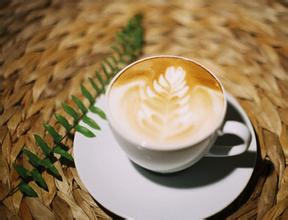A brief introduction to the Origin, Development, History and Culture of Puerto Rico boutique Laresiao Coffee beans

This is why Puerto Rico and Puerto Rico Yukot select Yauco Selecto, which is the manor bean, the joint brand of Puerto Rico San Pedro, Caracolillo and La Juanita.
Island Coffee-Puerto Rico
In fact, any kind of coffee will be given a unique flavor because of its origin, just like different music styles will always give you different feelings. Puerto Rico Yaoke coffee has the characteristics of boutique coffee, its acidity is very stable, full of particles, complete flavor, rich aroma. The reason why Yaocote chose coffee beans to be better than other producing areas on the island is that it is grown in high-altitude mountain areas, so it grows slowly and has rich fruit flavor, and it uses ancient coffee tree species, which have a unique flavor despite less yield. this is incomparable to some new tree species. Due to the abundant rainfall, rich soil and high-altitude microclimate zone, Yaoke coffee has all the qualities that gourmet coffee should have. Of course, Yaoke coffee is inseparable from the hard work of those coffee workers, who manage the whole process from planting coffee seedlings to post-harvest treatment.
And each kind of coffee has its own unique taste, when you taste Yaoke coffee, you will feel the unique acidic taste of Central American coffee, which is the most characteristic taste of Caribbean island coffee, so some people compare Yaoke coffee to the coffee with the most attractive tongue.
In history, sugarcane planting was the main industry, and post-industry surpassed agriculture to become the pillar of the economy. Front
San Juan new city
San Juan new city
The five major economic sectors are manufacturing, finance, insurance and real estate, other services, government expenditure and trade. The main industries include pharmaceuticals, electronics, petrochemical, food processing, textiles and clothing, etc. Tourism is also an important part of the Polish economy, accounting for 7% of Poland's total revenue in 2009. [1]
In 2011, GDP totaled US $98.76 billion, with a per capita GDP of US $26588, which is lower than that of the states in the United States, but it is the highest compared with the Caribbean island countries, and its economic competitiveness is also one of the highest in the Caribbean region. [1]
According to statistics from the US Department of Commerce, in 2012, Puerto Rico's foreign trade totaled about US $44.5 billion, of which exports were about US $18.7 billion, an increase of 2.6 per cent over the same period last year and accounting for 1.2 per cent of total US exports. The top five export markets are Belgium (2.4 billion), the Netherlands (2.1 billion), Japan (1.8 billion), Italy (1.6 billion) and the United Kingdom (1.5 billion). The products with the largest export volume were chemical products (15.2 billion, accounting for 81.6% of the total exports), computers and electronic products (400 million), electrical equipment and accessories (300 million), waste and scrap (300 million), and primary metal products (200 million). [1]
Imports totaled about $25.8 billion in 2012, up 4.8 per cent from a year earlier and accounting for 1.1 per cent of total US imports. The top five sources of imports are Ireland (7.6 billion), Singapore (4.1 billion), Japan (1.9 billion), Brazil (1.3 billion) and China (860 million). The main imported products include: chemical products (14.4 billion, accounting for 55.8% of the total import value), crude oil and coal products (5.6 billion), transportation equipment (800 million), oil and gas products (600 million), food (600 million), etc. [1]
On June 17, 2015, Puerto Rico Governor Garcia publicly admitted that the authorities were working on a proposal to ask the United States Congress to allow heavily indebted local governments to declare bankruptcy. After a decade of economic hardship, Puerto Rico has a debt of $72 billion. [9]
Social cause editor
Culture and education
With the advance of modernization, the Americanization of Puerto Rican culture is becoming more and more obvious. However, people of insight on the island believe that Puerto Rican culture should not be assimilated into the mainstream culture of the United States, otherwise the national identity of Puerto Rico will be lost. This proposition is closely linked to the debate over the political status of Puerto Rico and has become a political issue of concern to every Puerto Rican. The issue of language is one of the focuses of debate. When the people's Democratic Party came to power, it regained the priority of Spanish, but as time went on, English became more and more important. The direction of the development of Puerto Rican culture is still an open question. Education is relatively developed. The government has always attached importance to education and provides free and compulsory education for students aged 6 and 16. Classes are taught in Spanish, but English is a compulsory course. Higher education is well developed
Puerto Rico's coffee beans are carefully planted, pure, fragrant and heavy, of which the best coffee is Yauco Selecto, which means "Selecto". Yaocote Coffee is grown only on three farms in the southwest of the island, San Pedro, Caracolillo and La Juanita. It is a truly high-quality coffee with a strong flavor and a long aftertaste. The hills of southwestern Puerto Rico have a mild climate, a long period of plant maturity (from October to February) and high-quality clay. People here have been using an eco-friendly, intensive planting method, picking only fully ripe coffee beans and then flushing them in a drum device for 48 hours. Yaocote selected coffee beans are preserved with sheepskin before sale and will not be removed until order and delivery to ensure the best freshness of the coffee. Relevant U.S. government employees, such as FDA and USEA, will also be present at the transaction, and they are here to monitor producers' compliance with federal regulations. There are also professional reviewers who randomly take one bag of coffee from every 50 bags as samples and use international gauges to identify the quality of coffee beans, all in order to ensure the quality of the real Yaocote selected coffee.
Island Coffee-Puerto Rico
And Jaime Fortuno, the president of Escoki's Escogido Yauco agency, pays silent attention to all this work every year, even the smallest details. Fortuno is an investment banker who graduated from Harvard Business School. He was determined to seize every opportunity to open up a market for top coffee in Puerto Rico. He expects a maximum annual output of 3000 bags of 45kg each, less than 1 per cent of the island's total coffee production.
This is the reason why Puerto Rico and Puerto Rico Yukot select Yauco Selecto differently. Yukot chooses manor beans, which is the joint brand of Puerto Rico San Pedro, Caracolillo and La Juanita.
And Jaime Fortuno, the president of Escoki's Escogido Yauco agency, pays silent attention to all this work every year, even the smallest details. Fortuno is an investment banker who graduated from Harvard Business School. He was determined to seize every opportunity to open up a market for top coffee in Puerto Rico. He expects a maximum annual output of 3000 bags of 45kg each, less than 1 per cent of the island's total coffee production.
This is why Puerto Rico and Puerto Rico Yukot select Yauco Selecto, which is the manor bean, the joint brand of Puerto Rico San Pedro, Caracolillo and La Juanita.
Island Coffee-Puerto Rico
In fact, any kind of coffee will be given a unique flavor because of its origin, just like different music styles will always give you different feelings. Puerto Rico Yaoke coffee has the characteristics of boutique coffee, its acidity is very stable, full of particles, complete flavor, rich aroma. The reason why Yaocote chose coffee beans to be better than other producing areas on the island is that it is grown in high-altitude mountain areas, so it grows slowly and has rich fruit flavor, and it uses ancient coffee tree species, which have a unique flavor despite less yield. this is incomparable to some new tree species. Due to the abundant rainfall, rich soil and high-altitude microclimate zone, Yaoke coffee has all the qualities that gourmet coffee should have. Of course, Yaoke coffee is inseparable from the hard work of those coffee workers, who manage the whole process from planting coffee seedlings to post-harvest treatment.
And each kind of coffee has its own unique taste, when you taste Yaoke coffee, you will feel the unique acidic taste of Central American coffee, which is the most characteristic flavor of Caribbean island coffee, so some people compare Yaoke coffee to the coffee with the most attractive tongue, and its flavor is comparable to that of any other coffee variety in the world. In Yaoke
(Yauco) region, the coffee is owned and operated by the local plantation owner. The mountain climate here is mild and planted.
The soil has a long mature period (from October to February of the following year) and the soil is of high quality. Some old varieties are planted here.
Although the yield of Arabica coffee beans is lower than that of other varieties, it is generally of high quality. People here have been using a
Planting methods of ecological protection and intensive cultivation, using only some low-toxic fertilizers and chemicals, and adopting
Mixed crop planting measures to make the soil more fertile. When it's time to pick coffee beans, people are making coffee.
Walking back and forth between trees, picking only fully ripe coffee beans, and then washing them in a drum device.
For 48 hours.
The coffee beans selected by Yaocote were kept in shells before being shipped and sold, and the skins were not removed until the order was shipped.
Drop to ensure the best freshness of the coffee. When the goods are submitted, the relevant staff of the United States government, such as FDA
And USEA, who will also be present, work to monitor producers' compliance with federal regulations. And some come from
The staff of the local evaluation board, who take 1 bag out of every 50 bags as samples and use international gauges.
Carry on the quality appraisal to it
Puerto Rico's coffee beans are carefully planted, pure, fragrant and heavy, of which the best coffee is Yauco Selecto, which means "Selecto". Yaocote Coffee is grown only on three farms in the southwest of the island, San Pedro, Caracolillo and La Juanita. It is a truly high-quality coffee with a strong flavor and a long aftertaste. The hills of southwestern Puerto Rico have a mild climate, a long period of plant maturity (from October to February) and high-quality clay. People here have been using an eco-friendly, intensive planting method, picking only fully ripe coffee beans and then flushing them in a drum device for 48 hours. Yaocote selected coffee beans are preserved with sheepskin before sale and will not be removed until order and delivery to ensure the best freshness of the coffee. Relevant U.S. government employees, such as FDA and USEA, will also be present at the transaction, and they are here to monitor producers' compliance with federal regulations. There are also professional reviewers who randomly take one bag of coffee from every 50 bags as samples and use international gauges to identify the quality of coffee beans, all in order to ensure the quality of the real Yaocote selected coffee.
Island Coffee-Puerto Rico
And Jaime Fortuno, the president of Escoki's Escogido Yauco agency, pays silent attention to all this work every year, even the smallest details. Fortuno is an investment banker who graduated from Harvard Business School. He was determined to seize every opportunity to open up a market for top coffee in Puerto Rico. He expects a maximum annual output of 3000 bags of 45kg each, less than 1 per cent of the island's total coffee production.
Important Notice :
前街咖啡 FrontStreet Coffee has moved to new addredd:
FrontStreet Coffee Address: 315,Donghua East Road,GuangZhou
Tel:020 38364473
- Prev

A brief introduction to the description of the flavor and flavor characteristics of Larez Yaoke coffee in the manor area of Puerto Rico
Dora, Puerto Rico, coffee is the best in the world. Puerto Rico coffee is generally carefully cultivated, pure, fragrant, granular, among which the best is among the world's famous brands. Doradot is the best, with a strong flavor and a long aftertaste, and its aroma is comparable to that of any coffee variety. Puerto Rico was originally inhabited by Indians and went to America for the second time by Columbus.
- Next

A brief introduction to the planting market price of the fragrant varieties of Puerto Rico Larez Yaoke coffee beans
The Spanish-American War of 1889 ended with the victory of the United States, ending more than 400 years of Spanish rule over Puerto Rico. The demand for sugar in the United States has increased significantly, while the hurricane destroyed most coffee plantations, and the coffee industry in Puerto Rico was hit hard by natural and man-made disasters. In the 20th century, the national economy of Puerto Rico developed rapidly, with the strong support of the government and the local government.
Related
- Detailed explanation of Jadeite planting Land in Panamanian Jadeite Manor introduction to the grading system of Jadeite competitive bidding, Red bid, Green bid and Rose Summer
- Story of Coffee planting in Brenka region of Costa Rica Stonehenge Manor anaerobic heavy honey treatment of flavor mouth
- What's on the barrel of Blue Mountain Coffee beans?
- Can American coffee also pull flowers? How to use hot American style to pull out a good-looking pattern?
- Can you make a cold extract with coffee beans? What is the right proportion for cold-extracted coffee formula?
- Indonesian PWN Gold Mandrine Coffee Origin Features Flavor How to Chong? Mandolin coffee is American.
- A brief introduction to the flavor characteristics of Brazilian yellow bourbon coffee beans
- What is the effect of different water quality on the flavor of cold-extracted coffee? What kind of water is best for brewing coffee?
- Why do you think of Rose Summer whenever you mention Panamanian coffee?
- Introduction to the characteristics of authentic blue mountain coffee bean producing areas? What is the CIB Coffee Authority in Jamaica?

